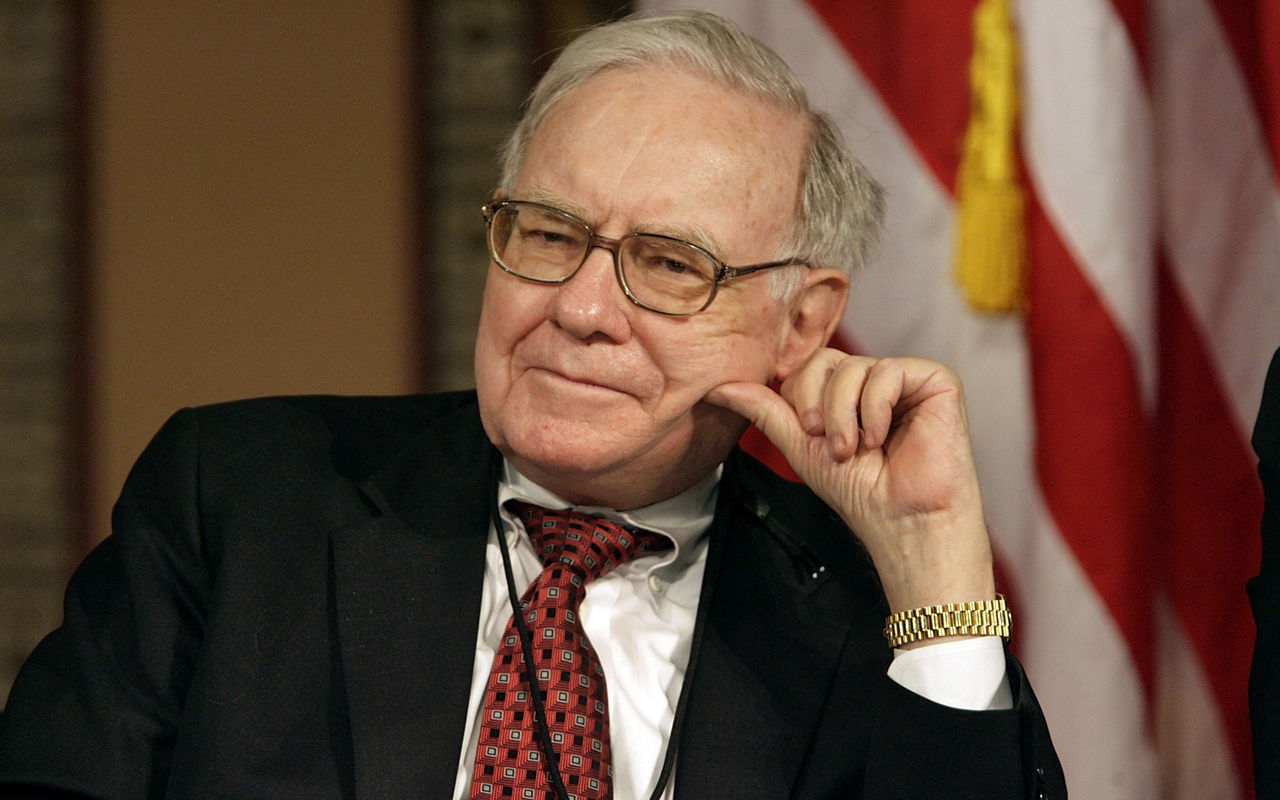Stock Jockeys Try Bonds
Fairholme and Third Avenue have new funds that venture into bonds.

Profit and prosper with the best of Kiplinger's advice on investing, taxes, retirement, personal finance and much more. Delivered daily. Enter your email in the box and click Sign Me Up.
You are now subscribed
Your newsletter sign-up was successful
Want to add more newsletters?

Delivered daily
Kiplinger Today
Profit and prosper with the best of Kiplinger's advice on investing, taxes, retirement, personal finance and much more delivered daily. Smart money moves start here.

Sent five days a week
Kiplinger A Step Ahead
Get practical help to make better financial decisions in your everyday life, from spending to savings on top deals.

Delivered daily
Kiplinger Closing Bell
Get today's biggest financial and investing headlines delivered to your inbox every day the U.S. stock market is open.

Sent twice a week
Kiplinger Adviser Intel
Financial pros across the country share best practices and fresh tactics to preserve and grow your wealth.

Delivered weekly
Kiplinger Tax Tips
Trim your federal and state tax bills with practical tax-planning and tax-cutting strategies.

Sent twice a week
Kiplinger Retirement Tips
Your twice-a-week guide to planning and enjoying a financially secure and richly rewarding retirement

Sent bimonthly.
Kiplinger Adviser Angle
Insights for advisers, wealth managers and other financial professionals.

Sent twice a week
Kiplinger Investing Weekly
Your twice-a-week roundup of promising stocks, funds, companies and industries you should consider, ones you should avoid, and why.

Sent weekly for six weeks
Kiplinger Invest for Retirement
Your step-by-step six-part series on how to invest for retirement, from devising a successful strategy to exactly which investments to choose.
If you like Fairholme Fund, you'll probably like Fairholme Focused Income (symbol FOCIX), too. And if you're a fan of Third Avenue Value, you'll probably be intrigued by Third Avenue Focused Credit (TFCVX). But don't be fooled by the similarity in the names of these two new funds. They're charting very different courses.
Fairholme and Third Avenue are known for their stock funds, but neither is new to bonds; Third Avenue, in particular, has long specialized in distressed debt. But Fairholme Focused is staking out conservative territory, taking little interest-rate risk and only modest credit risk, while Third Avenue Focused is assuming a whole lot of credit risk. Both aim to achieve their objectives by holding relatively few bonds -- 15 to 50 in Fairholme's case, and 50 to 60 at Third Avenue.
Different goals. The funds give their managers a lot of flexibility, but they have very different aims. Bruce Berkowitz, who runs Kiplinger 25 member Fairholme Fund, sees Focused almost as an enhanced money-market fund that will invest in a mix of cash-like instruments and high-grade corporate bonds. Depending on your perspective, Focused is either a sedate multisector fund or a bold short-term bond fund.
From just $107.88 $24.99 for Kiplinger Personal Finance
Become a smarter, better informed investor. Subscribe from just $107.88 $24.99, plus get up to 4 Special Issues

Sign up for Kiplinger’s Free Newsletters
Profit and prosper with the best of expert advice on investing, taxes, retirement, personal finance and more - straight to your e-mail.
Profit and prosper with the best of expert advice - straight to your e-mail.
By contrast, the initial portfolio disclosed by Third Avenue Focused is pretty junky. It's filled with corporate bonds and bank loans that have below-investment-grade ratings. High-yield investors expect credit risk, of course, but the new Third Avenue fund may give them more than they bargained for. After all, even the best-managed junk-bond funds usually suffer a few blowups every year.
One difference in the funds is crystal-clear: Expenses for Fairholme Focused will be low for at least a little while. The fund officially charges 1% annually, but it is waiving half that for the first year; it requires a $25,000 minimum investment. Third Avenue is charging a hefty 1.40% a year, although its minimum is just $2,500. If you have $100,000 to spare, you can buy the institutional shares (TFCIX) for 0.95% a year.
A second difference is that Third Avenue has added some brainpower to its fund. Six professionals are dedicated to Focused, led by Jeff Gary, who came from BlackRock (Third Avenue founder Marty Whitman is not on the Focused team). Fairholme, by contrast, hasn't added staff. It will be run by the same people who run Fairholme Fund -- Berkowitz and co-manager Charles Fernandez. But given Fairholme Fund's fabulous record, you could argue that that is a plus.
The new funds, although intriguing, raise the issue of whether a concentrated approach makes sense for bonds. Concentration can work for stock funds because a stock is capable of doubling or tripling in a relatively short period of time. If that sizzler is one of 20 holdings, it can have an outsize impact on performance. But you rarely get those kinds of pops with bonds. Over the years, most of the best bond-fund managers have held diversified portfolios in which even top holdings typically account for less than 2% of assets.
Then there's the matter of what bond investors seek. Most dislike risk and simply want income and steady returns. I doubt that many people will buy into the new Fairholme and Third Avenue products expecting run-of-the-mill bond funds. Their investors will likely be those who favor the unique way Third Avenue and Fairholme pick stocks.
I like the creative approach the two funds are taking to chasing value in the bond market, and I consider them welcome additions to the marketplace. But I would invest in them cautiously. Extend your planned holding period beyond what you would normally allow for funds in their categories -- Fairholme Focused may turn out to be riskier than a typical short-term bond fund, and Third Avenue Focused is shaping up to be one of the bolder junk-bond funds.
Columnist Russel Kinnel is director of mutual fund research for Morningstar and editor of its monthly FundInvestor newsletter.
Profit and prosper with the best of Kiplinger's advice on investing, taxes, retirement, personal finance and much more. Delivered daily. Enter your email in the box and click Sign Me Up.

-
 How Much It Costs to Host a Super Bowl Party in 2026
How Much It Costs to Host a Super Bowl Party in 2026Hosting a Super Bowl party in 2026 could cost you. Here's a breakdown of food, drink and entertainment costs — plus ways to save.
-
 3 Reasons to Use a 5-Year CD As You Approach Retirement
3 Reasons to Use a 5-Year CD As You Approach RetirementA five-year CD can help you reach other milestones as you approach retirement.
-
 Your Adult Kids Are Doing Fine. Is It Time To Spend Some of Their Inheritance?
Your Adult Kids Are Doing Fine. Is It Time To Spend Some of Their Inheritance?If your kids are successful, do they need an inheritance? Ask yourself these four questions before passing down another dollar.
-
 How I'm Going to Invest My Mega Millions Lottery Jackpot
How I'm Going to Invest My Mega Millions Lottery JackpotThe odds of winning the Mega Millions lottery are effectively zero, but here's how I'm investing my fortune should I hit the jackpot.
-
 Four Random Facts and Thoughts About Warren Buffett
Four Random Facts and Thoughts About Warren BuffettIf I love Warren Buffett so much why don't I just marry him?
-
 Investing in Gold Is Dumb
Investing in Gold Is DumbStocks are better than gold for both generating wealth and offering protection against inflation.
-
 What's So Scary About a Mega-Cap Tech Bull Market?
What's So Scary About a Mega-Cap Tech Bull Market?Bears say the market can't keep rallying when only five mega-cap tech stocks are driving returns, but history suggests otherwise.
-
 We Are Not in a Bull Market
We Are Not in a Bull MarketIt takes more than a 20% gain off the low to proclaim the beginning of a new bull market.
-
 Why I Don't Buy Stocks
Why I Don't Buy StocksIt's nearly impossible to beat the market – but it is cheap and easy to match it.
-
 Amy Domini on the Secrets of Sustainable Investing
Amy Domini on the Secrets of Sustainable InvestingESG An ESG pioneer says finding good corporate citizens is the best way to make money.
-
 Bitcoin Halving: What Does It Mean for Investors?
Bitcoin Halving: What Does It Mean for Investors?Technology 'Mining' for this cryptocurrency just became a lot more expensive